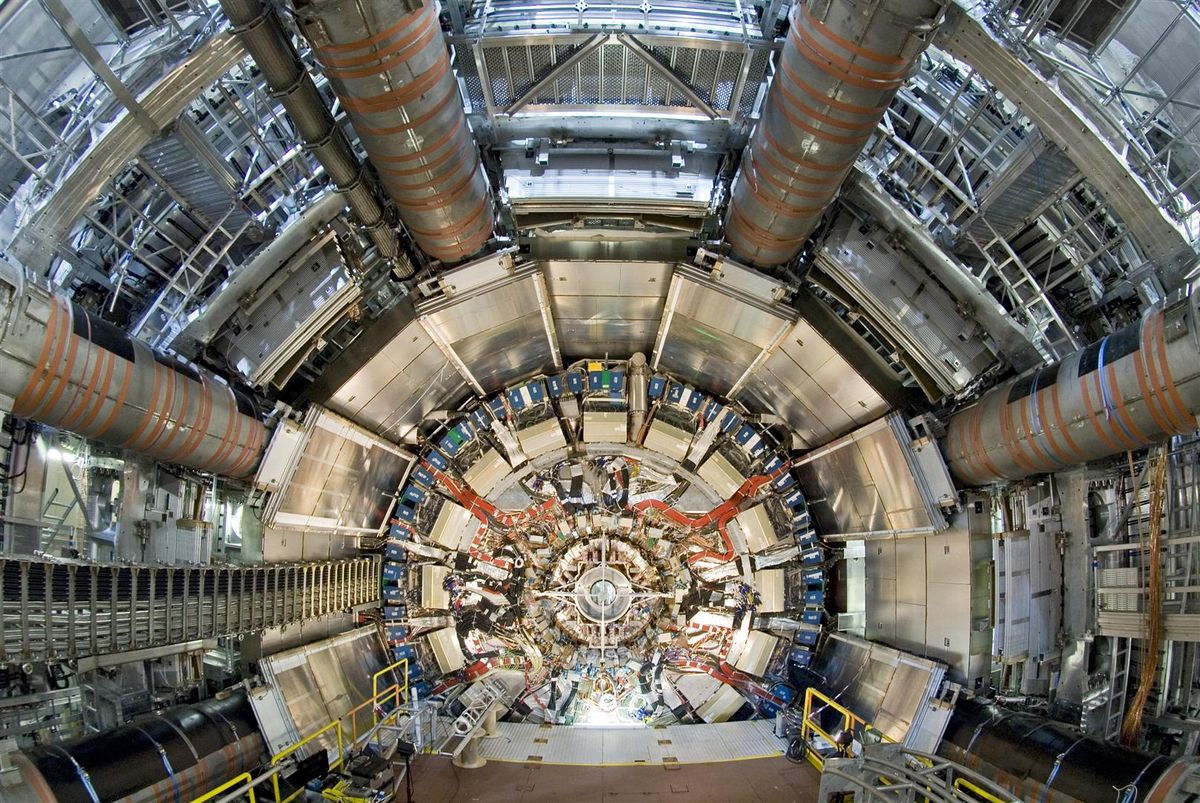
Israel became the 21st member state of CERN, the Geneva, Switzerland-based collaboration that runs underground particle accelerators such as the Large Hadron Collider.
The Israeli flag joined those from 20 other nations in a ceremony today (Jan. 15), after UNESCO officially recognized the new country as a member of CERN, or the European Organization for Nuclear Research. Israel is the first new member of the organization since 1999.
"The Israeli scientific community has brought a great deal to CERN over the years," said CERN Director General Rolf Heuer. "I am looking forward to welcoming Israel as our 21st Member State and to intensifying our collaboration."
Israel is actively involved in several big CERN projects, including the ATLAS experiment that found the Higgs boson and is now on the hunt for evidence of extra dimensions of space and dark matter.
The new state's induction comes after a 2010 decision to increase the number of member states at CERN. Before becoming a full member of CERN, Israel had to become an associate member, a status that lacks the full range of rights and responsibilities of full member states. The full member states bear more of the costs of operating and building CERN's big projects, and they also can weigh in on important decisions about future priorities.
Currently, Serbia is also an associate member, and Cyprus and Ukraine should become associate members once their parliaments sign on. Several other countries, including Pakistan and Turkey, have also applied for associate membership.
All of the other member states are in Europe, though the United States and other non-European countries have observer status, meaning they can go to the meetings, but don't get to weigh in on final decisions.
Sign up for the Live Science daily newsletter now
Get the world’s most fascinating discoveries delivered straight to your inbox.
Follow Tia Ghose on Twitter and Google+. Follow LiveScience @livescience, Facebook & Google+. Original article on LiveScience.

Tia is the managing editor and was previously a senior writer for Live Science. Her work has appeared in Scientific American, Wired.com and other outlets. She holds a master's degree in bioengineering from the University of Washington, a graduate certificate in science writing from UC Santa Cruz and a bachelor's degree in mechanical engineering from the University of Texas at Austin. Tia was part of a team at the Milwaukee Journal Sentinel that published the Empty Cradles series on preterm births, which won multiple awards, including the 2012 Casey Medal for Meritorious Journalism.









